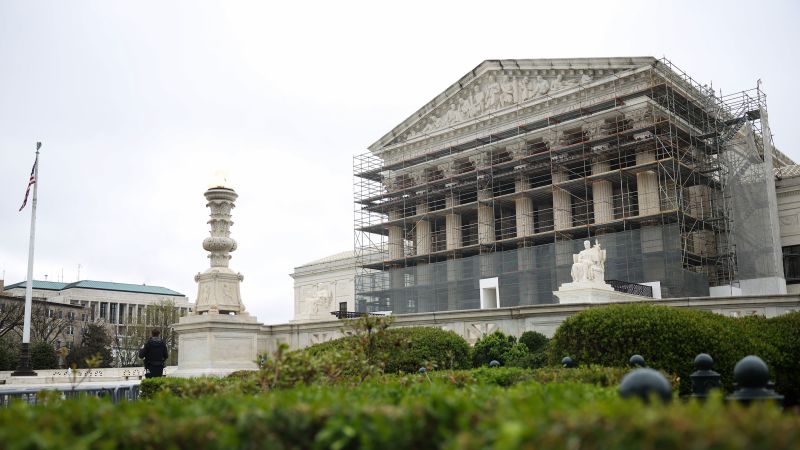- Get link
- X
- Other Apps
- Get link
- X
- Other Apps

Supreme Court Rejects Mexico's Lawsuit Against US Gun Manufacturers
In a unanimous decision, the Supreme Court dismissed a lawsuit filed by the Mexican government against several American gun manufacturers, shielding them from billions of dollars in potential damages. The case, which alleged that the manufacturers were responsible for fueling cartel violence along the US-Mexico border, has significant implications for the gun industry and international relations.
The core of the lawsuit centered on the argument that the manufacturers aided and abetted the illegal sale of firearms to Mexican drug cartels. Mexico claimed that 70% to 90% of guns recovered at crime scenes in the country originated in the US, highlighting the devastating impact of these weapons on its citizens. They pointed to the prevalence of firearms in Mexico despite the presence of only a single gun store nationwide.
The Mexican government specifically cited the marketing strategies of some manufacturers, alleging that certain firearms were designed and promoted with cartels in mind, using terms like "military-grade" and names such as "Super El Jefe." They sought $10 billion in damages, arguing that the manufacturers’ actions amounted to "aiding and abetting" firearms trafficking.
However, the Supreme Court’s decision hinged on the Protection of Lawful Commerce in Arms Act (PLCAA), a 2005 law that generally protects gun manufacturers from liability for crimes committed with their products. Justice Elena Kagan, writing for the court, explained that Mexico's complaint failed to plausibly allege that the manufacturers participated in the illegal sales in a way that suggested they wished to bring them about.
The court's opinion emphasized that while some unlawful sales undoubtedly occur and manufacturers are aware of this, the PLCAA's "predicate exception" only allows for accomplice liability when a plaintiff demonstrates plausible participation by the manufacturer "in something that [it] wishe[d] to bring about and sought to make succeed." Mexico's complaint, according to the court, did not meet this standard.
This decision is not without its complexities. Even some liberal justices, known for their support of gun control measures, expressed concerns during oral arguments in March regarding the implications of Mexico’s suit. Meanwhile, gun rights groups celebrated the outcome, viewing the lawsuit as an indirect attempt to undermine the American firearms industry.
Key aspects of the Supreme Court's ruling:
- The lawsuit was unanimously dismissed.
- The decision upheld the protections afforded by the PLCAA.
- The court found Mexico's allegations insufficient to establish accomplice liability.
The case follows a similar 2023 Supreme Court decision rejecting a lawsuit against Twitter (now X) for its alleged role in a terrorist attack. In that case, too, the court found the connection between the defendant's actions and the harm too tenuous to establish liability.
The Supreme Court's decision marks a significant legal victory for the US gun manufacturers involved. It also underscores the challenges inherent in pursuing accountability for transnational gun violence, highlighting the complexities of international law and the limitations of legal recourse in addressing the devastating impact of gun-related crime.
While the ruling provides closure to this specific case, the underlying issues of gun violence and its cross-border implications remain a pressing concern demanding ongoing attention and comprehensive solutions.
Tags: Supreme Court, Gun Violence, Mexico lawsuit, Gun Manufacturers, Cartel Violence, Arms Act, Liability, US Guns, Border Crime, Legal Decision, PLCAA, International Law
Source: https://edition.cnn.com/2025/06/05/politics/supreme-court-smith-wesson-mexico
Arms Act
Border Crime
Cartel Violence
Gun Manufacturers
Gun Violence
Legal Decision
Liability
Mexico lawsuit
Supreme Court
US Guns
- Get link
- X
- Other Apps
Comments
Post a Comment